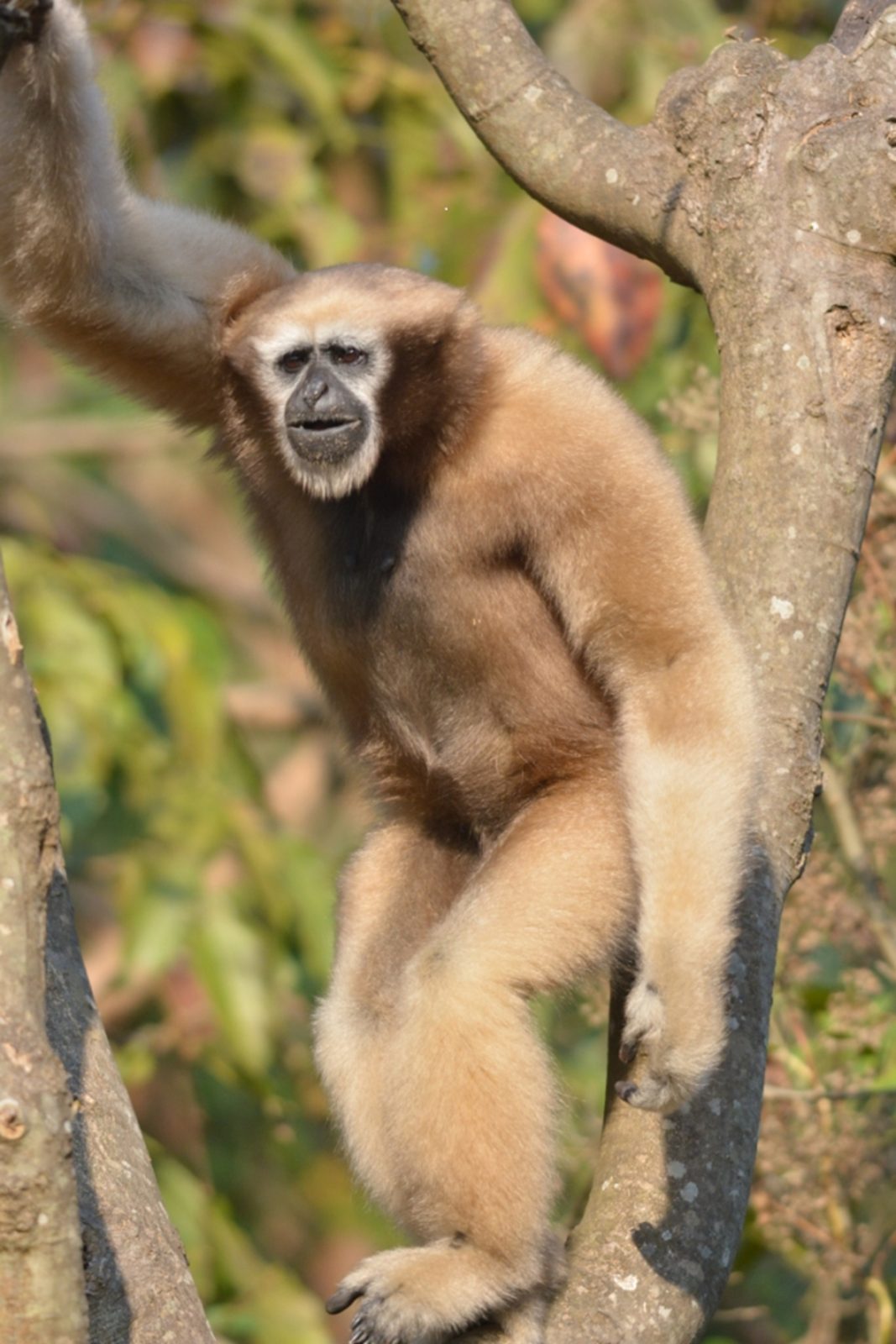
The Eastern and Western Hoolock gibbon, and the Skywalker gibbon
The Hoolock gibbons are 3 species (currently classified as separate species, lets see if they stay separate).
They are currently found in eastern Bangladesh, Northeast India, Myanmar, and Southwest China. Unfortunately, while in some of these places they have large blocks of forest to live in, in other countries like Bangladesh, the population is split as the forest has been cut into smaller fragmnets, and there is little or no way for the gibbons to cross the deforested areas.
While these 3 species have split up in the last few years, there future standing and likely survival or extinction is widely varied.
- The western Hoolock gibbons’s estimated population in 1980s was 3,000 individuals. By 2020 there were only about 469 gibbons left in 135 groups in Bangladesh’s northeastern and southeastern forests, according to the study. The decline is thought to be around 84% in 40 years in their Bangladesh population.
- The Eastern Hoolock gibbons are thought to be far more numerous, however their population is predicted to shrink by 30% in the next 3 generations (45 years) so they may be uprated from vulerable in the near future.
- The Skywalker gibbon (also known as the Gaoligong hoolock gibbon) is thought to have split from the Eastern Hoolock gibbon around half a million years ago. Unfortunately there are only thought to be 150 remaining members of this species, so they are extremely vulnerable to extinction. Unfortunately this species also has a fragmented range, which means that each small fragment has a higher chance of being pushed towards extinction. Regular translocation of these gibbons could assist in retaining a genetically healthy species – but whether this will occur is another matter.
As these are three closely related but separate species, we will include a bar that will show any articles on each one. Hopefully, in the future, there will also be 3 for places to see each of these species as well.
Eastern Hoolock Gibbon
[smart_post_show id="30949"]
Western Hoolock Gibbon
[smart_post_show id="30950"]
Skywalker Gibbon
[smart_post_show id="30951"]











